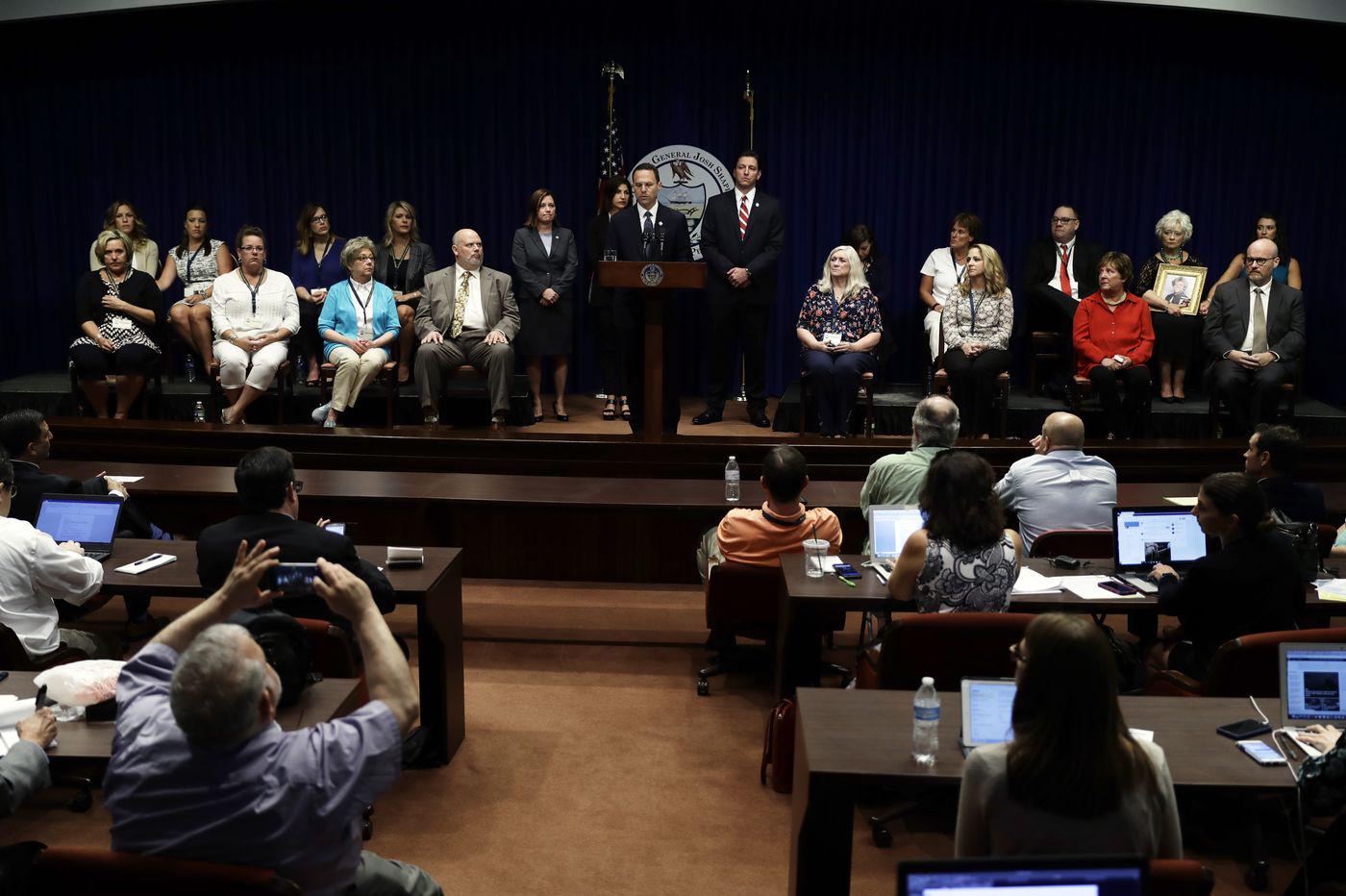|
Pa. Supreme Court: Names of Catholic clergy will remain shielded
By Angela Couloumbis And Liz Navratil
The Pennsylvania Supreme Court on Monday ruled that it would not release the identities of 11 Roman Catholic clerics implicated in a high-profile grand jury investigation of child sexual abuse, an inquiry that has shaken Catholics and fueled an international reckoning for the church. In its majority opinion, the high court sided with a group of former and current priests who claimed that they were denied due process because they were not given adequate opportunity to defend themselves against passages in a scathing grand jury report they believed were inaccurate or unfairly harmed their reputations. The report was made public earlier this year with temporary court-ordered redactions to mask the identities of those priests. The justices on Monday made that order permanent, saying in a 6-1 decision, with Chief Justice Thomas G. Saylor dissenting, that releasing the priests' names to the public would unjustly taint their reputations. A person's reputation, they noted, is a "fundamental individual human right" protected by the state constitution. But the justices left open the possibility that the priests could be investigated by a new state grand jury, so long as it granted due process rights to those accused of wrongdoing. The document of more than 1,000 pages chronicled seven decades worth of abuse in six out of the state's eight dioceses, sparking a wave of similar state and federal investigations across the country as well as the resignation of one of the nation's top Catholic leaders. "We acknowledge that this outcome may be unsatisfying to the public and to the victims of the abuse detailed in the report," Justice Debra Todd wrote for the majority. "While we understand and empathize with these perspectives, constitutional rights are of the highest order, and even alleged sexual abusers, or those abetting them, are guaranteed by our commonwealth's constitution the rights of due process." In a statement shortly after the high court released its opinion, state Attorney General Josh Shapiro said the justices' decision "allows predator priests to remain in the shadows and permits the church to continue concealing their identities." He noted that while he is now barred from revealing the clergy members' names in relation to the report, he believes the dioceses can and should share those names with their parishioners and the public. "I call on the bishops to do so immediately, consistent with their recent calls for transparency," Shapiro said. Justin Danilewitz, the Saul Ewing Arnstein & Lehr lawyer who represented many of the priests, called the court's decision "a victory for all Pennsylvanians." "There is no vindication in a wrongful accusation," Danilewitz said, "so we think that victims can take comfort in … that their voices were heard, but not at the expense of innocent individuals." The case before the high court centered on a contention that the state investigation trampled on the due-process rights of those under scrutiny. Lawyers for the clergy argued that their clients were denied an opportunity to appear before the grand jury to defend themselves, question witnesses, or provide contradictory evidence. They later argued that the report received so much publicity that it poisoned public opinion against their clients. The only solution, they contended, was to permanently block the names. They also took aim at the right under the law for statewide grand juries to issue critical reports even in cases when criminal charges are not filed. State prosecutors had countered that those named in the report — which singled out more than 300 priests who preyed on more than 1,000 victims over 70 years — were given the chance to respond in writing. They noted that the allegations in the report were supported by the church's own internal records, which prosecutors drew on heavily during their inquiry. They did not bring charges in the vast majority of the priest-abuse cases because the criminal statute of limitations had lapsed, they said. The Attorney General's Office also argued that there were other remedies — aside from permanently redacting the report — including taking the case back to the grand jury or convening a new one to hear evidence about the abuse. But the majority of the justices on Monday said they believed ordering such remedies would require changes to state law and thus fell outside the scope of their authority. Those issues, they said, must be addressed by the legislature — although Saylor last year convened a task force to examine the power of the investigating grand jury and make recommendations on whether to tweak or change the law. "We conclude that we may not employ any of the remedies offered by the parties," Todd wrote, "and, thus, that we must make permanent the redaction of petitioners' identifying information … as this is the only viable due process remedy we may now afford to petitioners to protect their constitutional rights to reputation." Saylor, in a dissenting opinion, said he believed there were workable alternatives available. He said a judge supervising the grand jury could hold a hearing on the priests' arguments and decide whether to release the portions of the report pertaining to them.
|
.
Any original material on these pages is copyright © BishopAccountability.org 2004. Reproduce freely with attribution.
